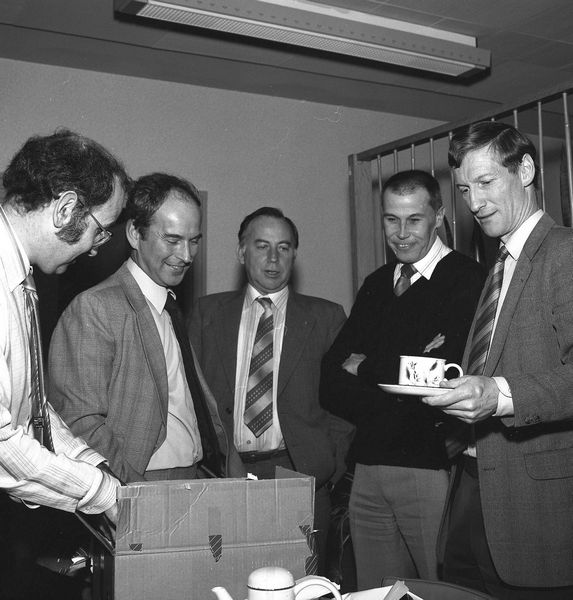

The PRIME 400 (donated by PRIME) continues to provide a service via terminals in five local schools, viz Wantage sixth form, St Birinus at Didcot, Abingdon College of Further Education, Wallingford School (Upper) and Abingdon School. With this support, the number of students studying A-level Computer Science at the schools attached to the PRIME continues to increase. The service has been steadily enhanced by improvements to both hardware and software. The store on the machine has now been increased to 1500 Kbyte with a second 80 Mbyte disk drive due to be added. Twenty-one terminals are now connected, seven at Wantage, four at Abingdon College and St Birinus, and three at Abingdon School and Wallingford. The terminals at Abingdon College are also used by students and staff from the John Mason School, Larkmead and Fitzharries schools. The machine is administered by students from St Birinus and Wantage who dump the disk to tape for backup and handle resource management and accounts.
Languages on the machine now include FORTRAN77, PASCAL, PROLOG and LISP, enabling a broader and more structured approach to programming to be taught in courses at all levels. The robot simulator KAREL is now fully operational. A simple well-structured language moves the robot around the screen, picking up and setting down objects and interacting with a previously defined 'world'. It is used for illustrating the concepts of structured programming and yet retains the power of a Turing machine despite its simplicity.
During the summer, fifteen A-level Computer Studies students from Abingdon College, Wantage and St Birinus visited RAL for three-week sessions of work experience. Between them they worked on help systems and datafiles on IBM and PRIME, with two specific projects on speech synthesis and PRIME systems software.
With many new projects arriving at RAL in the computing area, the Computing Division had grown to over 200 people and the decision was made to split the Division into two in July 1984. The Computer Review Working party had recommended that control and funding of the Interactive Computing Facility and Single User System programmes back to the Engineering Board. This meant that a Division of viable size could be formed whose interests were in the information systems area in the widest sense and which was funded completely by the Engineering Board. Bob Hopgood, the Head of the Computing Division, took over this new Division called Informatics in July 1984 with Cliff Pavelin taking responsibility for the new Central Computing Division. Brian Davies of Daresbury Laboratory was appointed the SERC Director of Computing and by the end of 1984 he had moved to RAL and took over responsibility for Central Computing Division with Cliff Pavelin moving to Informatics Division.
Informatics Division became responsible for the computing activities funded by the Engineering Board. A new section will describe these activities in due course.
